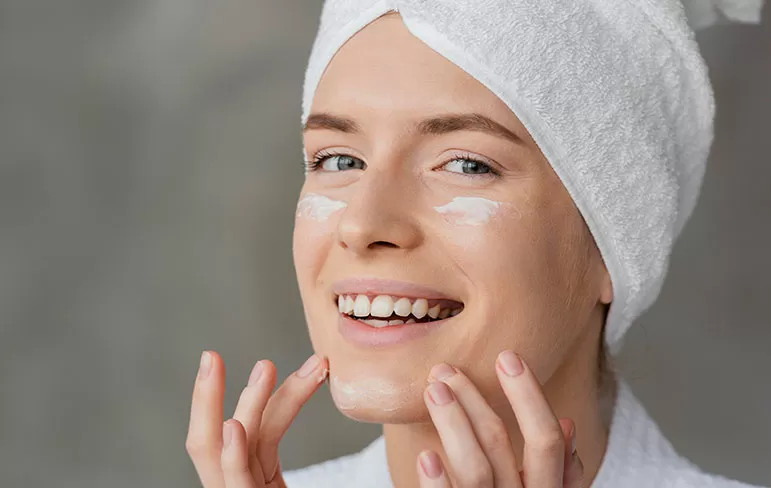Skincare is one of the most essential steps in achieving healthy and beautiful skin. However, there are many myths and misconceptions surrounding this topic. Some of us have been mindful of skincare since our youth, while others realize its importance later in life. Regardless of when we start, having accurate knowledge is crucial for maintaining skin health. Unfortunately, the frequent myths in skincare often lead to misinformation. Understanding these common misconceptions is a fundamental step in establishing an effective skincare routine.
Common Myths About Skincare
There are numerous myths about skincare that can mislead individuals. Below are some of the most common misconceptions:
Skincare Is Only for Women
The idea that skincare is exclusive to women is a widespread belief. However, this is entirely false. Skincare is necessary for everyone, regardless of gender. Men also need skincare to maintain healthy and youthful-looking skin. Although male skin differs in texture and composition, the fundamental skincare principles—such as cleansing, moisturizing, and sun protection—are essential for all.
Using More Products Means Better Results
Applying more skincare products does not necessarily lead to better results. On the contrary, overloading your skin with multiple products may cause irritation and allergic reactions. Instead of excessive use, selecting a few effective products that meet your skin's needs will yield better results. The key is to use high-quality, suitable products consistently rather than overwhelming your skin.
Sunscreen Is Only Needed in Summer
Many people believe that sunscreen is only necessary during the summer months. However, UV rays can damage the skin year-round. Even on cloudy days, harmful sun exposure continues. Regular sunscreen application is essential in every season to prevent premature aging, sunspots, and skin damage. Since sun exposure is one of the leading causes of skin aging, using sunscreen daily helps maintain youthful skin.
Acne Only Occurs During Adolescence
Acne is commonly associated with puberty, but it can persist into adulthood. Hormonal fluctuations, stress, dietary habits, and environmental factors can contribute to acne at any age. Adult acne is often more inflamed and deep-seated than adolescent acne. Establishing a skincare routine tailored to your skin type and seeking professional advice when necessary can help manage acne effectively.
Skin Type Doesn’t Matter When Choosing Skincare Products
One of the fundamental rules of skincare is selecting products according to your specific skin type. Oily, dry, combination, and sensitive skin types have different needs and require tailored skincare routines. Using the wrong products can worsen skin concerns rather than improving them. For example, dry skin needs deeply hydrating formulas, whereas oily skin benefits from lightweight, non-comedogenic products.
Natural Products Are Always Safe
Natural ingredients are often assumed to be better and safer than chemical-based products. However, not all natural products are suitable for every skin type. Some natural ingredients can cause allergic reactions, irritation, or sensitivity. For instance, lemon juice is a natural ingredient, but its high acidity can irritate the skin and lead to hyperpigmentation. It’s essential to research and test products before incorporating them into your skincare routine.
Exfoliation Should Only Be Done in Summer
Exfoliation removes dead skin cells and reveals a brighter, healthier complexion. However, many believe that it should only be performed in summer. In reality, exfoliation is beneficial year-round. Even during winter, exfoliating helps with dryness, flakiness, and uneven skin texture. The key is choosing gentle exfoliants and adjusting the frequency based on your skin’s sensitivity.
Anti-Aging Products Are Only for Mature Skin
The idea that anti-aging products should only be used by older individuals is a misconception. Taking preventive measures at a young age helps maintain youthful and healthy skin. Collagen production starts to decline after the age of 25, so incorporating anti-aging products early can slow down premature aging. Using hydrating serums, antioxidants, and SPF protection in your routine is an effective way to delay signs of aging.
Nighttime Skincare Is Unnecessary
The skin undergoes repair and regeneration at night, making nighttime skincare just as important as daytime routines. During sleep, skin cells work to restore damage caused by environmental stressors. Nighttime skincare should include hydrating creams, serums, and repair treatments. Since the skin absorbs products more efficiently at night, this is the ideal time to use active ingredients for maximum benefits.
Take the Right Steps in Skincare
Educating yourself and taking the right approach to skincare is essential for achieving and maintaining healthy skin. By following a skincare routine tailored to your skin type and needs, you can prevent premature aging, irritation, and breakouts. Avoiding misinformation and consulting experts when necessary will help you make informed decisions about your skincare regimen.
Remember, your skin is your most valuable asset! With the right care, you can achieve radiant, youthful, and glowing skin for years to come.




